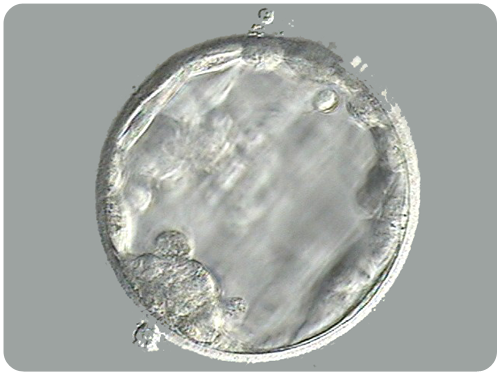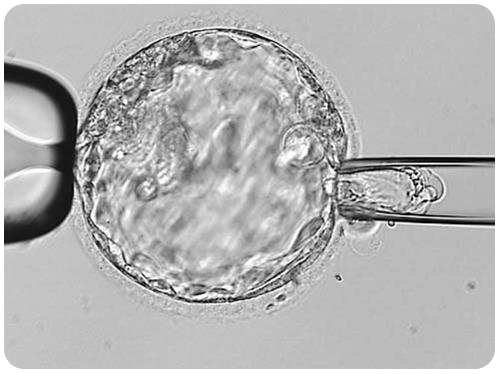


What is Gender Selection
Can you choose the gender with IVF? This is a commonly asked question by many of our patients


We were one of the first San Francisco Bay Area fertility clinics to offer Gender Selection IVF.
IVF for Gender Selection uses the Pre-implantation Genetic Testing (PGT) procedure to identify the gender of each embryo. With this method, prospective parents will know the gender of each embryo with 100% accuracy prior to their transfer into the uterus.
The Gender Selection IVF procedure requires the creation of embryos and, therefore, is an extension of In Vitro Fertilization. Please see the In Vitro Fertilization procedure for the process of creating the embryos.
IVF Gender Selection Procedure
Gender Selection is a complex treatment consisting of the following steps:
1. In Vitro Fertilization to create embryos
2. Extended embryo culture to blastocyst
The embryos should reach the blastocyst stage (80 or more cells) by the fifth to seventh day after the egg retrieval.
The picture below shows an advanced stage of blastocyst development. Notice the central fluid-filled cavity. The cells within the blastocyst have already differentiated into the inner cell mass (at seven o’clock) that will give rise to the fetus and the trophectoderm cells that will form the future placenta.

3. Blastocyst trophectoderm (embryonic tissue) biopsy
An embryo biopsy is performed by creating an opening in the eggshell around the embryo. It is possible to safely remove six to eight cells through this opening using a special microscope with micromanipulators. The cells are taken from the trophectoderm only (future placenta cells, genetically identical to embryonic cells). The “inner mass” cells (embryonic cells) are not removed.

So far, there is no evidence that embryonic biopsy results in an increased chance of abnormalities in the baby or that the risk of birth defects is higher when compared to conceptions that occur spontaneously without medical assistance (2% to 5%).
4. Blastocyst vitrification (cryopreservation)
Since it takes several days to carry out the embryo genetic analysis, the blastocysts are cryopreserved immediately after their biopsy and stored in liquid nitrogen in our IVF laboratory.
5. Genetic analysis of the embryonic tissue
The accuracy of PGT cell analysis of genetically abnormal embryos approaches 100% but is not guaranteed. Even though highly unlikely, it is possible that an embryo tested as normal may not be genetically perfect.
6. Liquid nitrogen storage of the cryopreserved embryos
Vitrified embryos can be stored for extended periods, but most PGT patients will start an embryo transfer cycle with the onset of the first menstrual period after IVF treatment.
7. Subsequent Frozen Embryo Transfer
The endometrial lining is first stimulated with estrogen and progesterone, followed by the thawing of one or two embryos tested as normal by the PGT analysis, and then transferring them into the uterus.
If you are successful, your pregnancy becomes indistinguishable from conception through intercourse, and your obstetrical care should be no different than if you had conceived without any treatment.
Meet Your Doctor

- Dr. Polansky received his medical diploma from Charles University in Prague, the Czech Republic, in 1978.
- After completing his OB/GYN residency at Jewish Hospital in Saint Louis, MO, he graduated from the Reproductive Endocrinology and Infertility (REI) fellowship at Stanford University in 1985.
- In the same year, he co-founded the Stanford IVF Clinic.
- Dr. Polansky obtained board certification in Obstetrics and Gynecology in 1986 and became REI subspecialty board certified in 1988.
- In 1987, he left Stanford University and established Nova IVF.
- In 2011, he founded Bay IVF, where he provides advanced fertility treatments with a holistic approach, utilizing state-of-the-art techniques.
- Dr. Polansky personally performs ultrasound examinations, egg retrievals, embryo transfers, and ovarian and endometrial stimulations for his patients.
- He is deeply committed to his patients and freely shares his cell phone number, ensuring accessibility and availability 24/7.
Frank Polansky, M.D.



Initial Appointment Questions
When you call to schedule your consultation, one of our Front Office Coordinators will ask you a short series of questions regarding your reproductive history.
Your Initial Visit at Bay IVF
Attending a new patient appointment at a fertility clinic can be stressful. Our primary objective is to ensure that your initial visit is friendly and relaxing. We encourage you to ask questions at every step of the process.

1 — When You Arrive
You will be welcomed by one of the clinic receptionists. One of our nurses will measure your height and weight and take your blood pressure

2 — Meet Your Doctor
Dr. Polansky will ask you a series of clarifying questions and then provide you with a summary of the factors contributing to your infertility

4 — Exam Room
One of the nurses will escort you to an examination room. Your examination will begin with listening to your lungs and heart

3 — Ask Your Questions
You will then have a discussion with him about the most suitable reproductive treatment(s) for you. During this time, you will have the opportunity to ask any questions you may have

5 — Ultrasound of the Ovaries
The next step is a pelvic ultrasound to examine the uterus and ovaries. This ultrasound will help determine the number of antral follicles present within the ovaries

6 — Financial Part
Following that, you will have a discussion with one of the financial advisors regarding the financial aspects of your treatment, including potential treatment financing options

8 — Support 24/7
If you have any questions after leaving the clinic, please feel free to reach out to us via phone call, text, or email. Open and discreet communication is an integral part of the care we provide at Bay IVF

7 — What About Time?
Your entire visit is expected to last approximately one hour


Schedule Your Initial Consultation With Dr. Polansky
Online (no cost) or In-Person
Call or Text Us: Call or text us at 📞 650 322 0500
You can also complete the form below to request your initial consultation.


We look forward to meeting you at Bay IVF and, when your treatment is successful, celebrating your new pregnancy!








